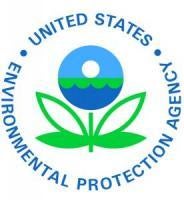WASHINGTON - Transocean Deepwater Inc. pleaded guilty today to a violation of the Clean Water Act (CWA) for its illegal conduct leading to the 2010 Deepwater Horizon disaster, and was sentenced to pay $400 million in criminal fines and penalties, Attorney General Holder announced today.
In total, the amount of fines and other criminal penalties imposed on Transocean are the second-largest environmental crime recovery in U.S. history – following the historic $4 billion criminal sentence imposed on BP Exploration and Production Inc. in connection with the same disaster.
“Transocean’s guilty plea and sentencing are the latest steps in the department’s ongoing efforts to seek justice on behalf of the victims of the Deepwater Horizon disaster,” said Attorney General Holder. “Most of the $400 million criminal recovery – one of the largest for an environmental crime in U.S. history – will go toward protecting, restoring and rebuilding the Gulf Coast region.”
“The Deepwater Horizon explosion was a senseless tragedy that could have been avoided,” said Assistant Attorney General Lanny A. Breuer of the Justice Department’s Criminal Division. “Eleven men died, and the Gulf’s waters, shorelines, communities and economies suffered enormous damage. With today’s guilty plea, BP and Transocean have now both been held criminally accountable for their roles in this disaster.”
Transocean’s guilty plea was accepted, and the sentence was imposed, by U.S. District Judge Jane Triche Milazzo of the Eastern District of Louisiana. During the guilty plea and sentencing proceeding, Judge Milazzo found, among other things, that the sentence appropriately reflects Transocean’s role in the offense conduct, and that the criminal payments directed to the National Academy of Sciences and National Fish and Wildlife Foundation are appropriately designed to help remedy the harm to the Gulf of Mexico caused by Transocean’s actions. The judge also noted that the fines and five year probationary period provide just punishment and adequate deterrence.
Transocean pleaded guilty to an information, previously filed in federal court in New Orleans, charging the company with violating the CWA. During the guilty plea proceeding today, Transocean admitted that members of its crew onboard the Deepwater Horizon, acting at the direction of BP’s well site leaders, known as “company men,” were negligent in failing to investigate fully clear indications that the Macondo well was not secure and that oil and gas were flowing into the well.
The criminal resolution is structured to directly benefit the Gulf region. Under the order entered by the court pursuant to the plea agreement, $150 million of the $400 million criminal recovery is dedicated to acquiring, restoring, preserving and conserving – in consultation with appropriate state and other resource managers – the marine and coastal environments, ecosystems and bird and wildlife habitat in the Gulf of Mexico and bordering states harmed by the Deepwater Horizon oil spill. This portion of the criminal recovery will also be directed to significant barrier island restoration and/or river diversion off the coast of Louisiana to further benefit and improve coastal wetlands affected by the spill. An additional $150 million will be used to fund improved oil spill prevention and response efforts in the Gulf through research, development, education and training.
Transocean was also sentenced, according to the plea agreement, to five years of probation – the maximum term of probation permitted by law.
A separate proposed civil consent decree, which resolves the United States’ civil CWA penalty claims, imposes a record $1 billion civil Clean Water Act penalty, and requires significant measures to improve performance and prevent recurrence, is pending before U.S. District Judge Carl J. Barbier of the Eastern District of Louisiana.
The charges and allegations pending against individuals in related cases are merely accusations, and those individuals are considered innocent unless and until proven guilty.
The guilty plea and sentencing announced today are part of the ongoing criminal investigation by the Deepwater Horizon Task Force into matters related to the April 2010 Gulf oil spill. The Deepwater Horizon Task Force, based in New Orleans, is supervised by Assistant Attorney General Breuer and led by Deputy Assistant Attorney General John D. Buretta, who serves as the director of the task force. The task force includes prosecutors from the Criminal Division and the Environment and Natural Resources Division of the Department of Justice; the U.S. Attorney’s Office for the Eastern District of Louisiana, as well as other U.S. Attorneys’ Offices; and investigating agents from: the FBI; Environmental Protection Agency, Criminal Investigative Division; Environmental Protection Agency, Office of Inspector General; Department of Interior, Office of Inspector General; National Oceanic and Atmospheric Administration, Office of Law Enforcement; U.S. Coast Guard; U.S. Fish and Wildlife Service; and the Louisiana Department of Environmental Quality.
This case was prosecuted by Deepwater Horizon Task Force Director John D. Buretta, Deputy Directors Derek A. Cohen and Avi Gesser, and task force prosecutors Richard R. Pickens II, Scott M. Cullen, Colin Black and Rohan Virginkar.



 />i
/>i

